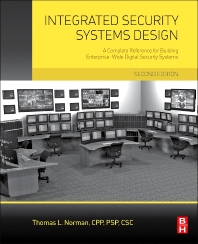Many of the dealers and integrators who own companies in the security industry have what is called a “lifestyle business,” meaning the business brings in enough profits for the owners to live in nice homes, drive great cars, and travel in style. While the owners may appear or may truly be living a comfortable lifestyle, this can change when it comes time for retirement, if a business owner is not prepared.
Preparation for retirement begins with finding out what your business is really worth. Even if your company makes millions and millions each year, it does not necessarily mean you will have enough money to live the same life in retirement that you did before it. I’ve frequently met owners who assume their companies are worth far more than they are, and are surprised when they learn the true value come sale time.
When hiring an accounting firm to perform an independent audit, I recommend having it done by a company that specifically performs audits for security companies.
An independent audit done by an accounting firm outside of the security industry may have a very different perception of price than one who understands the security market and the many factors that can affect it.
Unless you are a very unique organization, your value is most likely similar to other companies like your own, and industry buyers most often have a formula for what these types of businesses are worth.
Sure, on occasion buyers may have a specific need that makes a company special, but often those needs don’t translate to disproportionate payment for your company. Further, the concept that you will receive exceptional fees with multiple buyers involved, competing for you, is unrealistic as well. Buyers pay based on what returns they will get, and in what time frames. It’s really quite simple math, but a seasoned accounting firm can help you figure it all out.
Many business owners end up working longer than they hoped because of miscalculating their company’s value. If you miscalculate your company’s worth, you will be stuck in a quandary at the last part of your career.
Unfortunately, if this happens you may have to sell low, or grow your company to get the revenue you want. You may end up working harder at retirement age in order to develop new strategies to grow your worth. You may need to hire someone to help you run your company in order to grow it, which will cut into your income and lifestyle.
The only way to avoid this situation is to think about your long-term plans for retirement well before you get to retirement. My suggestions are: Research the true value of your business by the time you are 50, or even sooner, and structure a plan to get your business to the value you need it to be. Stable businesses can easily be organized for the required growth to get to the revenue you want in order to be ready to move onto the next phase of your life.
Most “lifestyle” companies not only fund a certain way of life but they also fund a certain way of working, as this is all a part of a “lifestyle business.” In order to reach your required retirement revenue, you’ll need a plan that gets you to where you need to be, and the longer you have to organize and execute this plan, the less disruptive it will be in your life and the better it will be for you.
In the end, success will be defined by many variables, including the quality and value of your work, how you treated your employees or coworkers, and, of course, how comfortable you are in retirement.
The above perspective comes full circle back to the many articles published to date in this column, “Growth Matters,” which are all about growing your business and the many tools that you can use to help you along the way. To read them, visit http://www.sdmmag.com/topics/2727-growth-matters.







